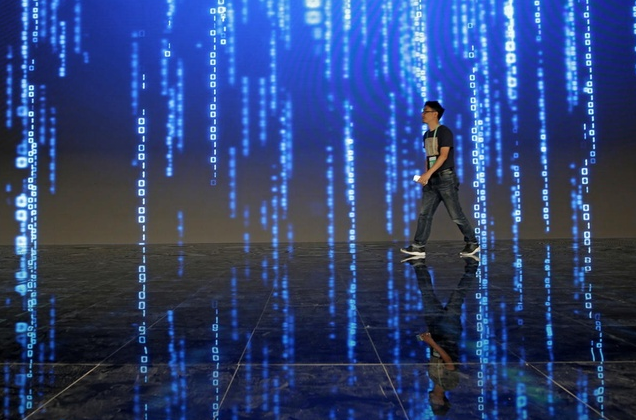
The ITU has identified the ‘digital gender gap’ as a problem in poorer countries, where men are getting online faster than women.
What did the United Nations ever do for us? At the risk of a bit of cliched riffing on that famous scene in Monty Python’s Life of Brian, this month’s column is going to take a look at things the UN does that you may not know about. And one thing in particular: promoting fair and equitable access to the internet.
Don’t click away! This is a really important issue, but one that had, if I’m honest, escaped my attention until I read a report published by the International Telecommunications Union (ITU) earlier this month.
In its latest report on global internet access, the ITU found that in some countries, notably the poorest, the gap between numbers of women using the internet, and numbers of men, was actually growing.
Worldwide 4.1 billion people have access to the internet, but 3.6 billion do not. Here in Europe we have reached virtual ‘saturation point’, the ITU says, but in some regions of some developing countries, only about 20% of the population are using the internet.
Curiously, it is often not because the internet is not available. In fact, 93% of us live within reach of a 3G or higher network. But internet access also requires money, and skills. The poorer you are, the less access you have to education and training, the more likely it is you may not be using the internet.
Digital Gender Gap
And so age-old inequalities are now being reflected in what the ITU has identified as a ‘digital gender gap’. Worldwide, 58% of men are using the internet, and 48% of women. And as the world’s least developed countries race to catch up with the digital revolution, men are getting online faster than women.
What that means, says Susan Teltscher, head of capacity building at the ITU, is that women are increasingly excluded from tools and skills that are fast becoming essential in daily life.
“Internet gives you access to information, to finance, to jobs, to business opportunities, government services, even birth certificates,” she explained. “So many applications now are being rolled out through the internet… not even to mention entertainment.”
Think about that. About the multiple times we go online every single day: to contact our bank, to make a doctor’s appointment, to enroll for a new class, to apply for a job. Someone who cannot do any of that is at a very serious disadvantage in today’s world.
“That is of great concern because our objective is to have digital inclusion and equality for all,” says Teltscher. “There is a real risk that this will reinforce inequalities, it’s almost like a vicious circle.”
Internet a human right?
A few years ago, the somewhat misleading headline “UN declares Internet access a Human Right” attracted a good deal of attention. The story referred in fact to debates at the UN Human Rights Council on the right to freedom of opinion and expression. I can remember that I and colleagues of mine were sceptical about this debate, after all we had spent much of that council session reading the latest horror reports from Syria, South Sudan or Iraq.
In fact, neither the ITU, nor the UN as a whole, has suggested that it is a human right to be able to get online. But what the ITU does say is that access should be universal, and affordable. If it isn’t, some people will be held back. Those people will be the world’s poorest, and many will be women.
Internet access can, Susan Teltscher believes, help promote the UN’s sustainable development goals. “Technology can be a key enabler to achieve these goals,” she points out.
That is why the ITU supports governments to roll out internet infrastructure, and advises them on how to bridge that digital gender gap. A key part of that has been ITU research asking women why they do not use the internet, when a network is available.
“Often they say it is too expensive, or that they don’t really know what it is, or what it can do,” says Teltscher. “So, we need to have training in digital skills, and we need to make it relevant. People won’t spend their money on something if they don’t think it can bring concrete benefits.”
Small agency, big job
Supporting equitable internet access is just one of the things the ITU does. It is, Susan Teltscher wryly suggests, ‘a small agency with a big job’. The ITU is the body which brings member states together to allocate radio spectrums, it sets standards for telephony, and for the internet, even for voice and video compression. The agency was actually founded in 1865, but its work is right up to date.
So, don’t giggle when I tell you what one of its latest projects is: driving tests for driverless cars. It’s actually very serious: anything that is going to transport people around needs testing, and needs safety standards. The ITU has realized this while many of the rest of us have barely even noticed that driverless cars will, sooner than we think, be a reality on our streets.
And, a few years from now, when that driverless car graciously stops to let you cross the road, you’ll know at least one answer to that question ‘what did the UN ever do for us?’
Full story here Are you the author? Previous post See more for Next postTags: newsletter































